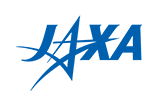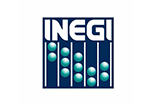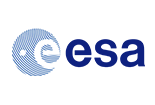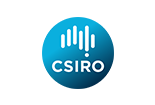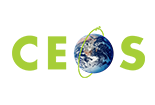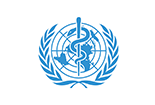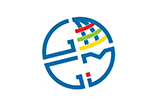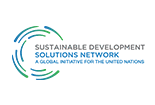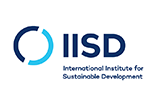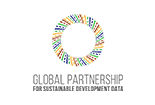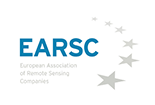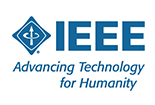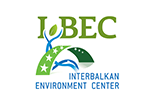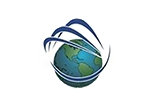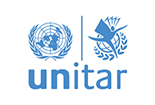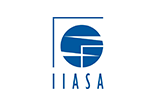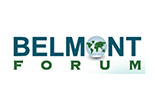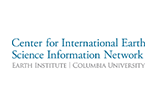GEO Week 2019 Key Side Event: Delivering on the SDGs
This session illustrates how Earth observation (EO) experts are working with national and international actors across regions to deepen the relevance of EO in support of global policy across water, land use, food security, and sustainable urbanization. The event showcases advances in EO to help countries address relevant SDGs, with emphasis on interlinkages and tradeoffs. GEO Members and the commercial sector will share examples of using EO to transform their economies; complement traditional statistical methods; and innovate with EO solutions.
The event will focus on promoting the value of EO toward achieving progress in sustainable development. This includes showcasing how countries can and currently use EO in their SDG monitoring and reporting, as well as in facilitating EO inclusion in national frameworks to increase social, environmental, and economic benefits.
The event will be divided in two parts. Part A will present success stories and use cases from countries integrating EO data and services in monitoring and implementation of the SDGs in all aspects, such as planning, tracking, and reporting. Such examples can be particularly useful for stakeholders and practitioners that are new to implementing Earth observation data into their workflows. Part B will provide an opportunity to share perspectives on how EO4SDG can further advance its work with GEO thematic activities and relevant stakeholders to integrate EO methods and services in national development plans and SDG monitoring and implementation. The panel will also discuss GEO’s role in developing methodological advice and practical guidance on EO approaches, particularly focusing on the integration of remotely sensed and ground based EO data with national statistics, socioeconomic data, data from citizen science observatories, and other ancillary sources. Such guidance, made openly shareable and easily accessible, can expand GEO’s role in assisting governments and international agencies with designing and applying EO-integrated SDG methodologies and more effective and timely policy responses.
The recording from our Key Side Event is available here.
Organizers
GEO EO4SDG in collaboration with the CEOS SDG Ad Hoc Team and GEO thematic initiatives including: GEOGLAM, GEO LDN Initiative, GEO Blue Planet, and GEO Human Planet, and partners.
Point of Contact
Dr. Argyro Kavvada, GEO EO4SDG Initiative (NASA)
Objectives
The Side Meeting will focus primarily on the following items:
- Present success stories and use cases from countries integrating EO data and services in SDG planning, tracking, monitoring and reporting.
- Identify gaps, challenges, and recommendations for inspiring multi-stakeholder partnerships to enable synergies in SDG monitoring and implementation at the local, national, regional, and global levels.
- Review and provide recommendations for improving the way EO4SDG works with thematic activities to maximize the use of EO for the SDGs.
- Share progress and perspectives on GEO’s role in developing methodological advice and practical guidance on EO approaches for informing SDG targets and indicators, particularly focusing on the integration of remotely sensed and ground based EO data with national statistics, socioeconomic data, data from citizen science observatories, and other ancillary sources.
Outputs
The side meeting will result in concrete take-away messages for participants, including shareable examples of reproducible EO methods and applications for SDG monitoring and implementation; and use cases that illustrate how EO experts are working with local managers, national governments, regional initiatives, and international institutions to integrate EO methods, tools and data in national development plans and to optimize SDG monitoring and implementation. These outputs will feed into a series of SDG EO toolkits that will aim to complement guidance published by the SDG custodian agencies and will be produced in close cooperation with these efforts. These toolkits will facilitate knowledge sharing, interlinking national experiences, and foster understanding between technical analysts and decision makers of the role and contributions of EO in tracking progress, monitoring, reporting, and implementing the SDGs. In addition, these materials will be presented in an openly accessible manner via the EO4SDG website and will also be linked to the proposed GEO Knowledge Hub and other relevant sites.
Annotated Agenda
Setting the Stage and Meeting Objectives (15 mins)
Argyro Kavvada, Executive Secretary, EO4SDG Initiative
Session Details
The EO4SDG Executive Secretary will provide brief updates on EO4SDG work since the last GEO Plenary and will set the stage for the two panel discussions to follow, highlighting each panel’s objectives. She will then showcase 1-2 short videos from GEO member countries that are already using Earth observations to inform, monitor, and report on SDG targets and indicators. This will facilitate the transition to Panel A, Country Use Cases of EO integration in SDG Monitoring and Reporting.
Panel A – Success stories from countries integrating EO data and services in SDG planning, tracking, reporting, and implementation (45 mins)
Moderators: Chu Ishida, Paloma Merodio
Session Details
Panelists will provide short (5-7 min) presentations on existing use cases (including a brief description of the workflows) of EO use to inform progress against SDG target(s) and report on SDG indicator(s)).
Slides (maximum 5) should be illustrative of:
(a) the critical steps in integrating EO in SDG indicator methods / processes at national/sub-national and/or regional level (please highlight key drivers of success);
(b) the workflow(s) showcasing the EO integration (i.e., the data you are using, the type/ format, any tools or services you have developed or applied to compute the relevant indicator(s)), validation/ verification aspects, are the data used in official reporting, other aspects that demonstrate EO impact)); and,
(c) any limitations of the EO data and other key issues/ challenges (be specific, provide these within the context of your use case/ example(s)
Suggested questions for Panel A
- Based on your experiences, what capabilities do country-relevant stakeholders (NSOs, ministries, others) need to develop to be able to produce SDG indicators based on geospatial information and Earth observations? (Consider methods, processes, institutional arrangements, standards and frameworks, technology, required trainings / technical skills development, other)
- In your opinion, how can EO4SDG, and GEO overall, facilitate the inter-linking of national experiences and their integration at global level (i.e., by helping feed these into global methodologies/ metadata, providing a forum to exchange EO best practices and address technical issues, etc.)?
- If you are already using Earth observations for SDG monitoring, analysis, and/or reporting, what are some of the requirements and challenges in optimizing data flows between SDG custodian agencies, national statistical offices and relevant sectors/ institutions in your country?
Panel B – Maximizing GEO’s impact on delivering on SDGs by working through a coordinated framework (60 mins)
Moderators: Lawrence Friedl, Argyro Kavvada
Session Details
Panelists will provide short (5 min) presentations on (a) their respective initiatives’ work in developing methodological advice and practical guidance on EO approaches in support of SDG targets/ indicators, and (b) reflect on the concept note (most recent (working) document) on the development of SDG EO toolkits to fill a current gap in value demonstration and practical guidance on using EO for SDG planning, tracking, monitoring, and reporting in a timely manner, with a particular focus on integrating remotely sensed data with ground-based observations and ancillary data sources.
Slides (maximum 5) should be illustrative of:
- Examples of existing work with SDG custodian agencies, international organizations, global initiatives, countries, and the non-public sector in developing methodological guidance on EO approaches and tools in support of SDG targets/ indicators;
- How each respective activity / initiative plans to/ can contribute toward the development of the EO4SDG toolkits;
- How to maximize knowledge sharing through partnerships/ collaborations, highlighting non-traditional partnerships with a focus on leaving no one behind (addressing the most vulnerable populations)
Suggested questions for Panel B
- In your opinion, what is one main reason why EO approaches and data for SDGs remain not as widely utilized, particularly in developing countries? (e., lack of standardization of EO data, the need of analysis-ready data, lack of successful case studies to provide proof of concept, insufficiency of collaborative efforts among many countries in addressing similar problems etc.)
- How can regional networks driven by national needs feed into global monitoring processes and capacity? How can EO4SDG, and GEO more broadly, contribute to this effort?
- What are some effective ways to involve the non-public sector in the efforts to scale EO uses for the SDGs, with a focus on addressing the most vulnerable populations? (Consider how we can more effectively leverage non-public products and services for the SDGs, as well as philanthropic and other investments targeted towards fostering the sustainable development of communities around the world.)



